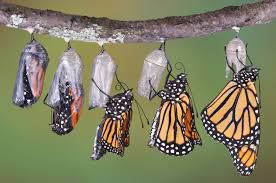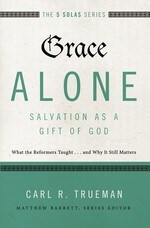The situational archetype of birth, death, and rebirth is one of the most common in literature. Not only is it prevalent in literature, it can be also found in nature, society, and art.
After reading The Professor and the Madman by Simon Winchester, it becomes clear that the archetype of birth, death, and rebirth is also present in the novel. Through Doctor William Minor, this cycle can be observed. Rather than getting technical, I’ll explain this archetype with a simple analogy: a caterpillar turning into a butterfly. Just as a caterpillar lives, turns into something dead to the world, and then reemerges as something new, so does Minor.
 The cycle of rebirth of a butterfly. Source: https://disruptiveviews.com/telco-transformation-more-than-just-a-rebirth/
The cycle of rebirth of a butterfly. Source: https://disruptiveviews.com/telco-transformation-more-than-just-a-rebirth/
Minor’s archetypal birth is evident during his early years in Sri Lanka and the United States. These early years in Minor’s life form him as a person before he succumbs to madness and his subsequent “death.” Minor is born into a wealthy American missionary family in Sri Lanka. I think that because he is privileged, he is able to receive extensive education so “By the time he was twelve he spoke good Singhalese and is supposed to have had a fair grounding in Burmese, as well as some Hindi and Tamil, and a smattering of various Chinese dialects” (Winchester 70). His intellect is evident even as a young child. However, as a teenager, Minor becomes sexually tempted by village girls. As a result, his parents send him to the United States. This hints at a side of Minor that will become increasingly prominent in the future. In the United States however, Minor focuses primarily on his education, studying at Yale University to become a surgeon. He also takes up activities such as reading, painting, and playing the flute that earn him the reputation of a brilliant and gentle young man. However, there are still hints of his madness that I, as a reader, picked up on. The author describes Minor as “a gentleman of fine education and ability, but with dissolute habits” (31). As a reader, it is clear that Minor’s madness is beginning to poke through. These early years in his life are comparable to a caterpillar, beginning the first stage of its life.
It is the Civil War that causes Minor’s descent to “death.” I noticed that Minor is described by his acquaintances as “sensitive” (76), so it is quite a shock when he enlists in the Union Army as a surgeon. During the war, he witnesses many horrors. In fact “‘exposure in the battlefield’ was suggested by some doctors as the cause of his ills” (91). The horrific battles and injuries Minor witnesses take a toll on him. After the war, his descent into madness becomes so consuming that he is admitted to an asylum in Washington D.C. for three years. After being released, Minor moves to London where he believes he will recover. However, in his madness and delusions, he murders an innocent man he believes was trying to hurt him. I think that with the death of his victim, he brings upon his own “death” by being arrested and put under investigation. This is comparable to the “death” of a caterpillar as it envelops itself in a cocoon, which is essentially dead to the world around it.
However, Minor is “reborn” upon his institutionalization into Broadmoor Asylum. Instead of living out the rest of his life in jail, Minor is given a second chance. He resides comfortably in the asylum where he receives proper treatment and can send his time engaging in leisurely activities. Furthermore, it is clear that Minor is “reborn” through his work on the Oxford English Dictionary. For example, “His personality was undergoing, even if only for a short while, a sea change–all because, at long last, he had something valuable to do” (178). I like to imagine that after beginning to work on the dictionary, Minor feels a sense of purpose, and becomes happier. I know that when I accomplish something I work hard at, I feel joy. I find that Minor’s “rebirth” is similar to a butterfly coming out of it’s cocoon. While inBroadmoor Asylum, Minor emerges as a new and improved version of himself.
 Doctor William Chester Minor. Source: http://www.bbc.co.uk/legacies/myths_legends/england/berkshire/article_1.shtml
Doctor William Chester Minor. Source: http://www.bbc.co.uk/legacies/myths_legends/england/berkshire/article_1.shtml
Work Cited
Winchester, Simon. The Professor and the Madman. New York: Harpercollins, 1999. Print.
“Telco Transformation – More Than Just a Rebirth.” DisruptiveViews. N.p., 04 June 2015. Web. 01 Aug. 2017. <https://disruptiveviews.com/telco-transformation-more-than-just-a-rebirth/>.
“Legacies – Myths and Legends – England – Berkshire – Broadmoor’s Word-finder – Article Page 1.” BBC. BBC, n.d. Web. 03 Aug. 2017. <http://www.bbc.co.uk/legacies/myths_legends/england/berkshire/article_1.shtml>.
Advertisements Share this:





